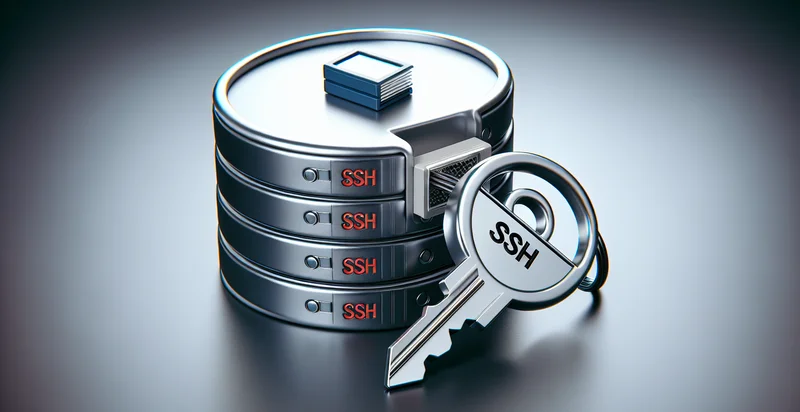Identify if ssh key is in a database
using AI
Below is a free classifier to identify if ssh key is in a database. Just input your text, and our AI will predict if the SSH key is in the database - in just seconds.

Contact us for API access
Or, use Nyckel to build highly-accurate custom classifiers in just minutes. No PhD required.
Get started
import nyckel
credentials = nyckel.Credentials("YOUR_CLIENT_ID", "YOUR_CLIENT_SECRET")
nyckel.invoke("if-ssh-key-is-in-a-database", "your_text_here", credentials)
fetch('https://www.nyckel.com/v1/functions/if-ssh-key-is-in-a-database/invoke', {
method: 'POST',
headers: {
'Authorization': 'Bearer ' + 'YOUR_BEARER_TOKEN',
'Content-Type': 'application/json',
},
body: JSON.stringify(
{"data": "your_text_here"}
)
})
.then(response => response.json())
.then(data => console.log(data));
curl -X POST \
-H "Content-Type: application/json" \
-H "Authorization: Bearer YOUR_BEARER_TOKEN" \
-d '{"data": "your_text_here"}' \
https://www.nyckel.com/v1/functions/if-ssh-key-is-in-a-database/invoke
How this classifier works
To start, input the text that you'd like analyzed. Our AI tool will then predict if the SSH key is in the database.
This pretrained text model uses a Nyckel-created dataset and has 2 labels, including Key Found and Key Not Found.
We'll also show a confidence score (the higher the number, the more confident the AI model is around if the SSH key is in the database).
Whether you're just curious or building if ssh key is in a database detection into your application, we hope our classifier proves helpful.
Related Classifiers
Need to identify if ssh key is in a database at scale?
Get API or Zapier access to this classifier for free. It's perfect for:
- Security Compliance Monitoring: Organizations can leverage the SSH key classification function to regularly scan databases for unauthorized or untracked SSH keys. This ensures compliance with security policies and helps mitigate risks associated with unauthorized access.
- Incident Response and Forensics: In the event of a security breach, this function can quickly identify SSH keys that exist in the system. This aids forensic teams in understanding potential entry points used by attackers and helps devise mitigation strategies.
- Access Control Auditing: IT departments can use the identifier to audit user access privileges by identifying which SSH keys are associated with active users. This ensures that access permissions are regularly reviewed and unnecessary keys are removed to maintain a secure environment.
- Automated Key Management: Organizations can implement this function in automated key management systems to regularly update or revoke SSH keys in response to changes in user status. The system can automatically classify keys, ensuring that compliance measures remain robust without manual intervention.
- Risk Assessment and Vulnerability Management: By classifying SSH keys in databases, security teams can assess risks associated with orphaned or outdated keys. This proactive approach allows organizations to address vulnerabilities before they can be exploited.
- SSH Key Lifecycle Management: Businesses can utilize this function to manage the lifecycle of SSH keys, ensuring that keys are created, rotated, and revoked following best practices. This helps maintain an organized key repository and strengthens overall security posture.
- DevOps Pipeline Security: In DevOps environments, this function can help identify SSH keys embedded within code repositories or deployment pipelines. By ensuring that only secure and approved keys are present, organizations can prevent potential security weak points during deployment processes.


